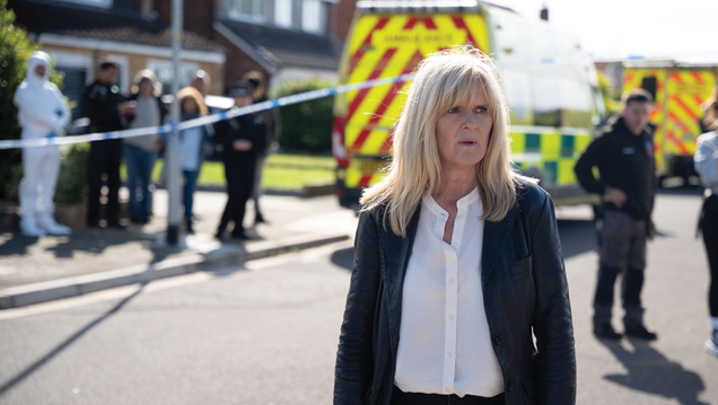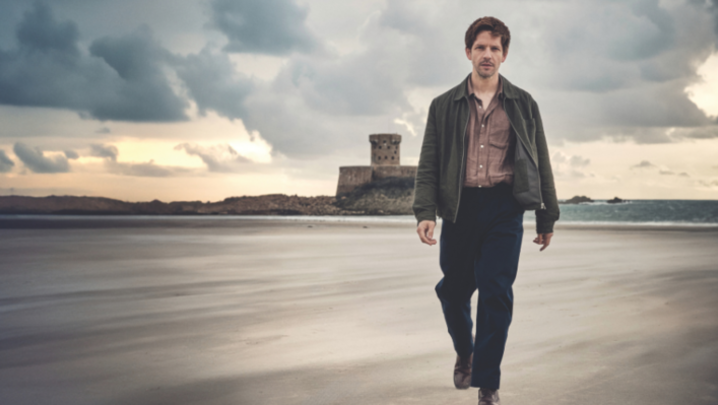Audio Network's pioneering business model is making it easier for TV and film to licence music for their productions, discovers Matthew Bell
At Abbey Road Studios, Audio Network is recording Fifties-style rock ’n’ roll songs to add to the 120,000-plus tracks in its library. From sweeping orchestral works and Portuguese fado to hip hop and ukulele music, there is something for even the fussiest TV or film producer.
Over the past three years, the company’s music has been used on television more than 8 million times across the world. It has sold tracks to 180 countries, including the Vatican and North Korea. In the UK, Audio Network compositions recently featured in BBC One’s The Night Manager, Sky 1 sitcom Yonderland and Absolutely Fabulous: The Movie.
A week before the Abbey Road session, Television spoke to Audio Network’s Chairman, Andrew Sunnucks, who founded the music production company with Robert Hurst in 2001.
At the time, the two men were working at classical music publisher Boosey & Hawkes. Their idea was simple – to make, from scratch, new music for TV and film that could be easily and cheaply licensed. This, they argued, would be a godsend to producers who complained that they were wasting time and money clearing music with composers, publishers and agents around the world.
Audio Network’s business model – which Sunnucks says other outfits have followed – means that all rights to the music are owned by the company.
The 241,000 users currently registered with the business can use as much music as they want, on any platform, anywhere in the world. “Our principle is to charge a low, up-front fee, like a subscription, to our customers,” Sunnucks explains. “We make money out of getting lots of music on the telly, for which we get royalties from the broadcasters.”
He gives Hurst the credit for simplifying the music-licensing process – “this was more Robert’s world, as the grown-up in the relationship” – while he concentrated on the music, about which he is passionate.
“At the time, everything was made using synths and samples – I hated that period,” recalls Sunnucks. “I wanted to record music with real players.”
“Anyone can make a nice noise on a computer and that has a market. But to build a music company, you need to find a way to differentiate yourself."
Rather than raising money to pay writers to create a catalogue of new music, Sunnucks sought tunesmiths to invest in the business. Among the first to take shares were the late jazz legend John Dankworth, Grammy award-winning saxophonist and composer Tim Garland, and Terry Devine-King, the co-composer of the rock ’n’ roll tracks being recorded at Abbey Road.
“A lot of composers have had bad experiences with publishers,” says Sunnucks. “It felt the right thing to do: [to build] a creative company, at least partly owned by the creative people in it.”
Fifteen years later, Audio Network employs the talents of more than 600 composers, although only those from the early days are shareholders.
Up to 20 new albums of music are added to the catalogue every month, much of it recorded at Abbey Road, where Audio Network is the biggest customer of the famous north London studios.
Long-running TV shows hoover up incidental music in industrial quantities, so the Audio Network catalogue needs constant topping up.
Current composers on the company’s books include percussionist Evelyn Glennie; Joe Kraemer, who wrote the music for the latest instalment of the Mission: Impossible franchise, 2015’s Rogue Nation; even Eighties pop star Nik Kershaw, who “writes great hooks”, says Sunnucks.
“Anyone can make a nice noise on a computer and that has a market. But to build a music company, you need to find a way to differentiate yourself, which we do by focusing on the quality of the music,” he insists.
Sunnucks is a musician himself and produces Audio Network’s orchestral and large-ensemble recordings. He is a pianist but leaves the playing to the professionals.
“The truth is, I work with some of the best players in the world and I learnt fairly early on that I was never going to be a piano player,” he explains. “I can use the piano as a tool to write, and still do from time to time, but what I really do is find talent and produce it.”
Audio Network is in the middle of recording the great classical orchestral works, “making it easier for telly to use”, says Sunnucks. “Sitting in Abbey Road, listening to the opening bars of a Beethoven symphony – it doesn’t get much better than that.”
Most of the catalogue is recorded in London, using ensembles and orchestras such as the Royal Philharmonic Orchestra, jazz, rock and funk musicians, and artists from around the world who have made London their home.
But the search for authenticity also takes Audio Network around the globe. “If TV wants Brazilian music, we’re going to try to record it in Brazil with Brazilian players,” says Sunnucks. “We want to be the Google Earth of music, a place where people can zoom into specific parts of the world and get authentic music for each geographical area.
“I’d like to get to the point where we can provide opportunities for people from all over the world to write and play for us.”
Live from Abbey Road Studios
In a single day at Abbey Radio Studios in September, Audio Network musicians are recording 13 tracks of Fifties-style rock ’n’ roll. Terry Devine-King, who wrote the music with guitarist Adam Drake, and lyricist Elfed Hayes watch as the band learns, demos and records songs at lightning speed.
The band – guitar, bass, drums, saxophone and singer – are playing together for the first time. ‘If you’ve got good players, it’s irrelevant whether you’ve played as a band before,’ says Harry the Piano, another Audio Network composer. He is a virtuoso pianist who can play any musical style and is often heard on BBC Radio.
Devine-King, who played with The Style Council, is one of Audio Network’s original composers. He wrote the music for the BBC One show Room 101.
‘The music of the Fifties is imprinted on every musician. For this album we are using old recording techniques, guitars, amps and microphones and an ancient mixing desk,’ he explains. ‘It’s a different sound and it’s really refreshing to recreate the sound of a bygone age.’
The band is playing in Studio 2 where The Beatles recorded most of their peerless music. Their equipment includes the piano played by Paul McCartney on Lady Madonna and the echo chamber used to record Ringo Starr’s drums.
‘It’s impossible to forget we are playing in Abbey Road Studios. There’s a bit of trepidation but it’s also hugely exciting,’ says Harry.
‘There’s never a day when you don’t pinch yourself,’ adds Audio Network’s fixer Dom Kelly, on the enduring thrill of working at Abbey Road. Kelly’s job is to find musicians, often at short notice, to record the thousands of tracks that are added to the catalogue every year.
‘We try to cherry pick the best players for whatever style of music we’re doing. Sometimes, you’ve got to juggle personalities, too, as people may have had a falling out,’ says Kelly. Harry says Kelly ‘has the biggest address book in the world’.
When they are mixed and mastered, the rock ’n’ roll tracks will be added to the Audio Network catalogue and made available to TV and film.
On screen, the music’s role, says Devine-King, is to ‘advance and tell the story. There’s no formula – it can be brash and stand out or it can be so understated you almost don’t notice it. It’s there to create a feel.’







